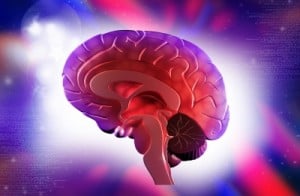
In the US, about 30 million cases of migraines are reported each year. Migraines are persistent, pulsing headaches that come with several other difficult symptoms making daily functioning come to a halt. Anyone who has ever experienced a migraine can tell you how intensely painful they can be and how difficult they are to treat. The pain of a migraine typically worsens with exertion. Those suffering often are confined to a quiet, dark room until the pain lets up. Migraines are caused by blood vessels that become enlarged in addition to the release of chemicals from nerve fibers surrounding these vessels.
Aside from head pain, those who experience migraines also feel symptoms such as:- Pain concentrated in one isolated spot or around one eye
- Sensitivity to light
- Sensitivity to sound
- Nausea and/or vomiting
- Dizziness
- Lightheadedness
- Visual aura
- Inability to sleep
- Neck pain
- Nasal congestion
Those who experience migraines often feel helpless, as there is no way to know when a migraine will occur and very few effective treatments are available to stop the pain. This can cause feelings of anxiety between migraine episodes as a person does not know when the next one will strike. Living a normal life becomes challenging because of the debilitating nature of migraines.
Neurofeedback has the ability to stop a migraine in its tracks while it’s occurring. However, more importantly, neurofeedback sessions aim to reduce the frequency and intensity of migraines long term by training the brain to function optimally. Those living with migraines on a frequent basis can finally feel relief knowing that migraines occur far less after treatment and are much more manageable when they do hit. For more information about how neurofeedback can help treat migraines, please call our office to schedule a free consultation with Dr. Jolene Ross.
Photo courtesy of stockimages at www.FreeDigitalPhotos.net








